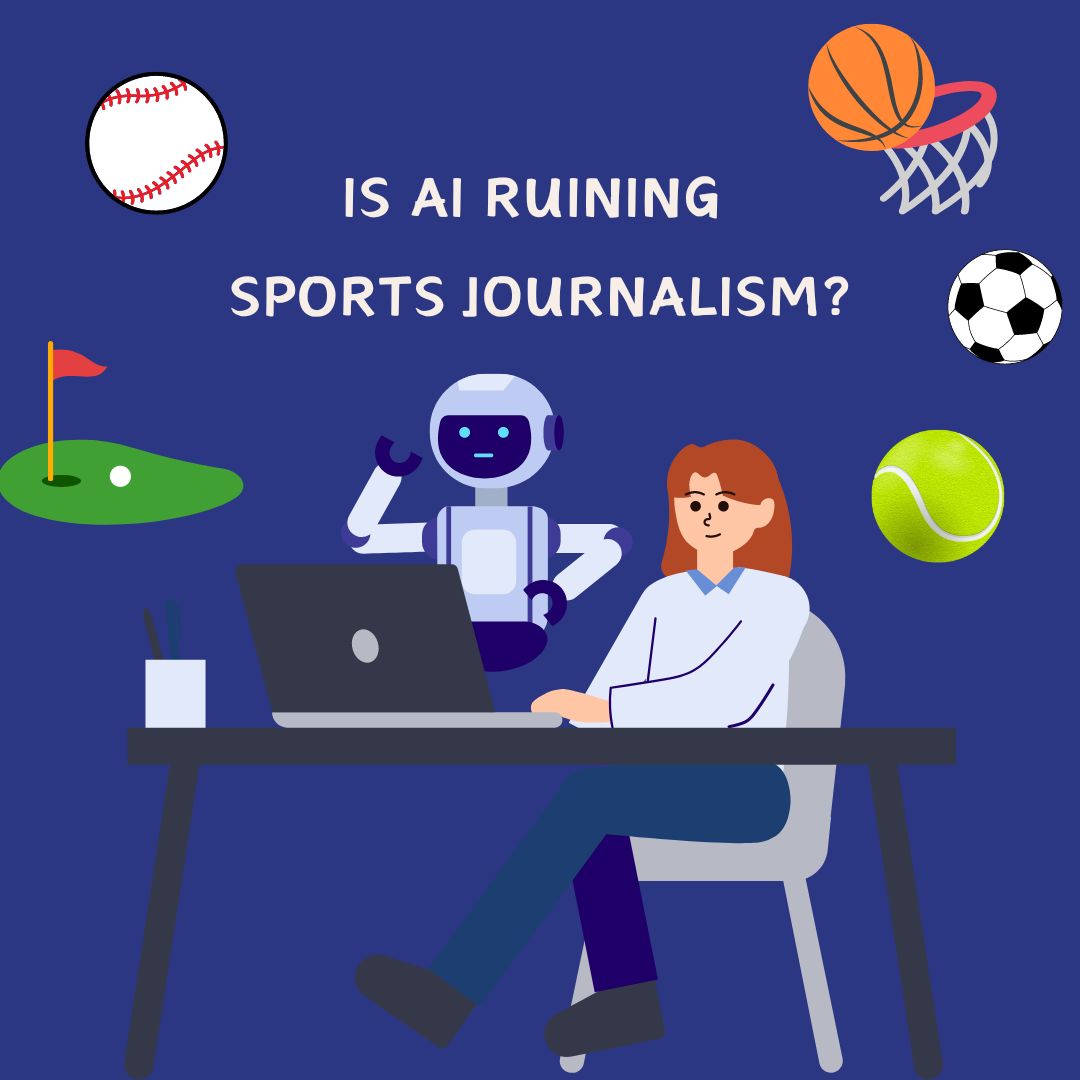In November, the company Futurism, an organization studying the future of science and technology, discovered that Sports Illustrated had been using artificial intelligence, or AI, to write articles and using fake names to do so. Upon this discovery, the once-reputable Sports Illustrated magazine has been severely in decline, resulting in many layoffs and financial problems.
AI has been used more often recently and has changed the way that entertainment, art, music and education industries operate. While it can be useful sometimes, like for fixing your grammar or managing your calendar, there is no doubt of the implications it can have on the world.
When Sports Illustrated first started using AI, they were motivated by AI’s ability to produce articles faster and more efficiently. Also, since most of Sports Illustrated’s revenue comes from selling physical magazines rather than online subscriptions, keeping up with the digital age was difficult and their business was already in decline, long before the AI crisis happened.
Sports Illustrated is not the first to use AI, however. A study conducted by the World Association of News Publishers found that nearly 50 percent of newsrooms use AI tools like Chat GPT to help them write articles or produce summaries of articles, with 70 percent of the people participating in the survey stating that they find Generative AI to be beneficial. What is more troubling, though, is how little AI is controlled when it comes to journalism. For example, the above-mentioned survey found that only 20 percent of the participant’s newsrooms had restrictions on the extent to which writers could use AI tools. This puts journalists in an awkward position, where they don’t really know how much they can rely on it without feeling like they’re reducing the article’s credibility.
Sports are especially impacted by this because of AI’s ability to interpret statistics and formulate them into articles. This, however, takes away from the uniqueness and creativity behind sports journalism, making the articles appear choppy and robot-sounding. As someone passionate about sports journalism and even thinking about pursuing it for a career, this sudden rise in AI has me concerned, and questioning what the future holds for the industry.
If companies continue to resort to AI, then chances are that the field of sports journalism is in grave danger. So, I urge all newspapers to keep AI from ruining the passionate, genuine and reliable field of journalism, before it is too late. If more policies are put in place to prevent the use of Generative AI tools in writing, we as a society can continue to cherish the true essence of sports journalism, and the trustworthy human writers behind it.










